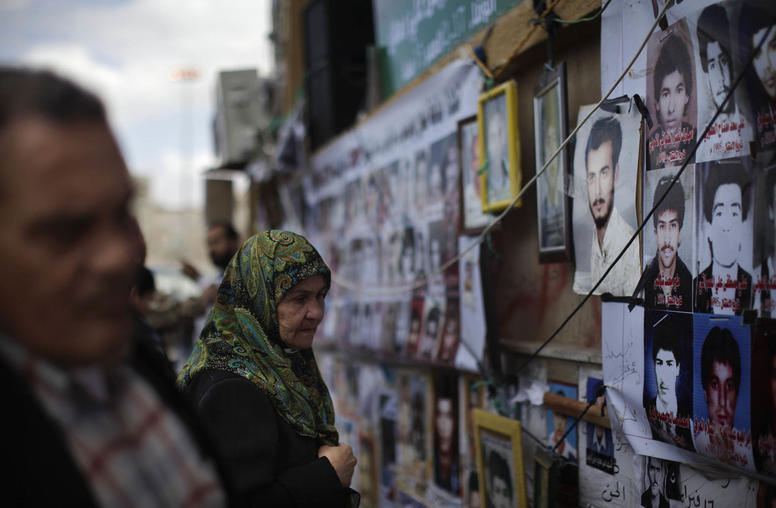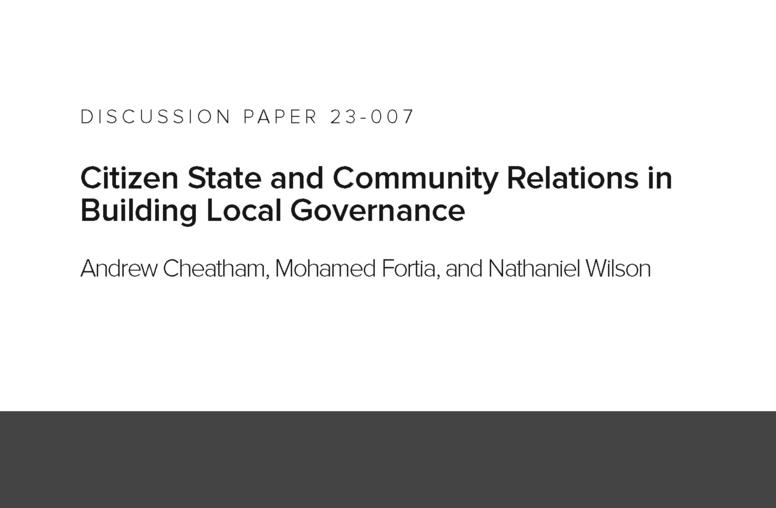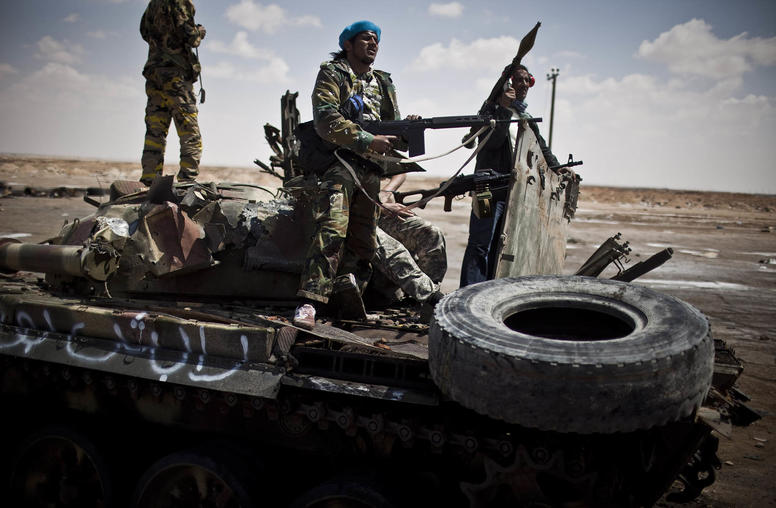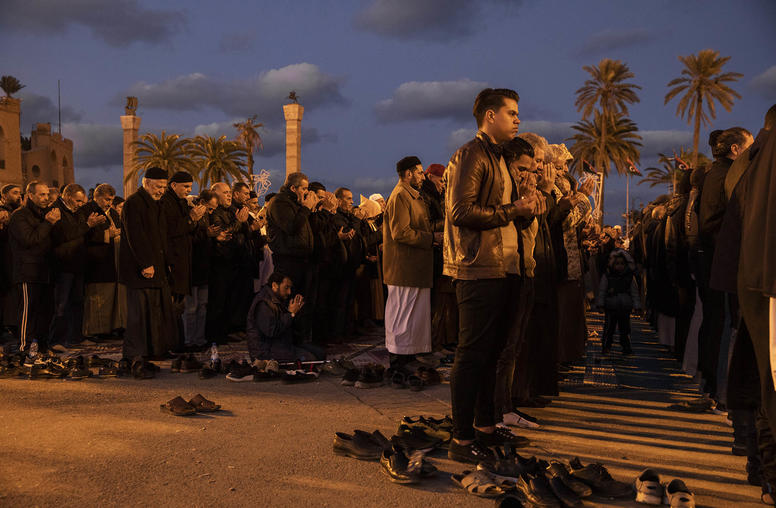Syria, Libya, Mali Illustrate Dilemmas of Backing Militias
Militias often fill the vacuum in conflicts or post-conflict situations where government law-and-order authorities are unwilling or unable to carry out their functions. Such a situation creates a fundamental dilemma: What should the relationship be between arguably legitimate authorities and the militias, and how can the connection be managed responsibly?
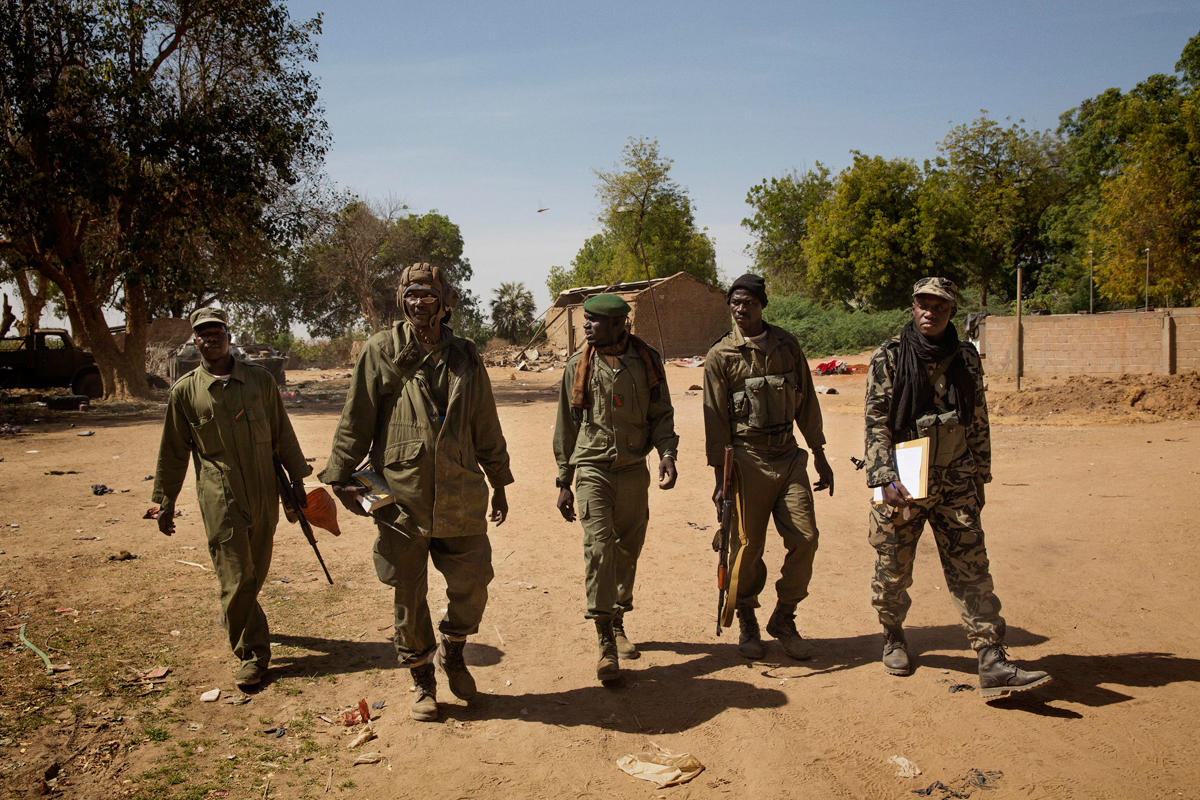
Militias often fill the vacuum in conflicts or post-conflict situations where government law-and-order authorities are unwilling or unable to carry out their functions. Such a situation creates a fundamental dilemma: What should the relationship be between arguably legitimate authorities and the paramilitaries, and how can the connection be managed responsibly?
In Syria, rebel militias brought a detainee, “unshackled and in flip-flops,” into a school that had been converted to a courtroom run by seven imams to face charges of belonging to President Bashar Assad's shabiha paramilitaries and informing on antigovernment activists, according to an August 2012 account in the Los Angeles Times. In Libya, militia groups continue to control some communities and refuse to surrender their weapons to the new government. In Mali, the militia group Azawad National Liberation Movement (MNLA), formerly aligned with Islamists but currently supporting Mali government forces and the French military, have undertaken law and order functions by detaining militant Islamists.
At any one time, militias might exist to support governments, to fight against governments or each other as rebel groups, or to conduct criminal activities. A recent study found that, between 1981 and 2007, there were at least 331 pro-government militia groups functioning in 88 countries. There are currently no reliable statistics concerning rebel or criminal militias, but it’s reasonable to assume that, at the very least, those groups operate in the same countries and exist in similar numbers as do the pro-government militias.
There is little doubt that where governments are unwilling or unable to act, paramilitary forces can provide some level of protection to the local population. Often they do so with fewer resources and with greater levels of commitment because they are acting within their own communities. They might also be less corrupt than the government authorities.
On the other hand, the costs of supporting militias includes the potential that they could, in fact, worsen security. They might commit gross human rights violations, become criminals, refuse to disarm, or further weaken formal government structures and influence.
The tension between militias protecting the local population vs. further exacerbating the security situation is not easy to deal with. But assuming that in some cases governments believe they must support paramilitaries to maintain law and order, consideration needs to be given as to how to mitigate the risks of providing that support.
Simply arming militias with no conditions is clearly inappropriate as it almost guarantees that the members of the group will misuse their power. Such a debate has been playing out in the U.S. and among other allies on whether and how much to support the Syrian rebels who’ve taken control, by some estimates, of two-thirds of the country.
In cases where governments opt to provide weapons to a militia, officials can take a number of steps to mitigate the risks:
- Implement methods to vet both the militia group and its members;
- Ensure the group is appropriately trained not only in the use of the weapons but also in fundamental legal rules and standards on issues such as the human rights of detainees and the minimum use of force;
- Institute a process for monitoring to hold the group’s members and their commanders accountable for their acts, especially in the case of gross violations of human rights;
- Establish a system of reparations or making amends to civilian victims of the conflict.
One means of ensuring that militias carry out their functions maintaining law and order is to call on them to adopt a code of conduct that sets out fundamental standards that they agree to abide by. In Syria, for example, some militia members have signed a code of conduct to observe human rights. Of course, any such commitment requires cooperation with independent and impartial monitors to verify the group’s adherence to the code. The work undertaken by Geneva Call, an international humanitarian organisation, in getting armed non-state groups to observe the norms found in the Anti-Personnel Land Mine Ban Convention through a Deed of Commitment is a useful model to consider when thinking about the enforcement of a code of conduct.
So what do you see as the potential pitfalls of government supporting militia groups even with a code of conduct? Tell us your thoughts by submitting a comment below.
Bruce ‘Ossie’ Oswald is an associate professor at Melbourne Law School at the University of Melbourne, Australia, who currently holds a Jennings Randolph Senior Fellowship at USIP, specializing in international humanitarian law, human rights, post-conflict and peacekeeping activities and the rule of law.
